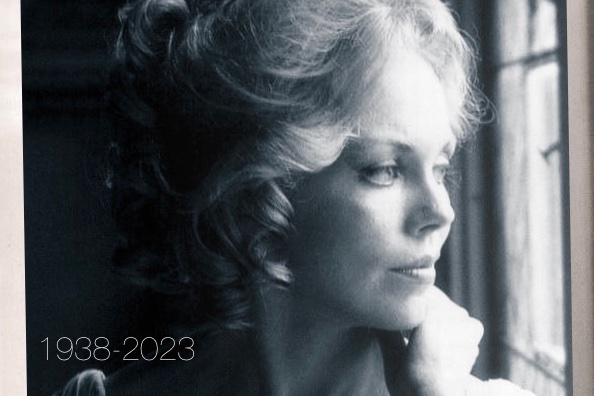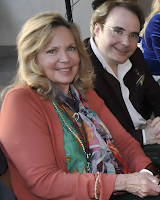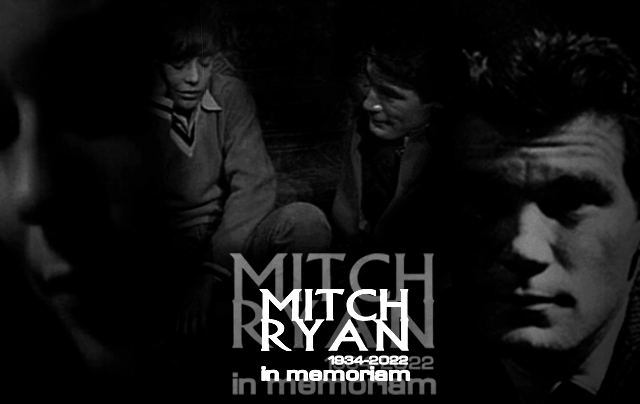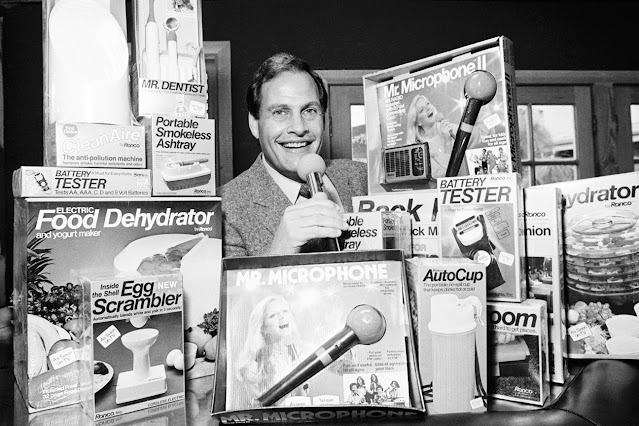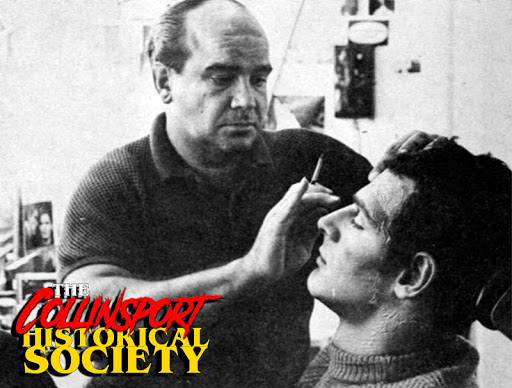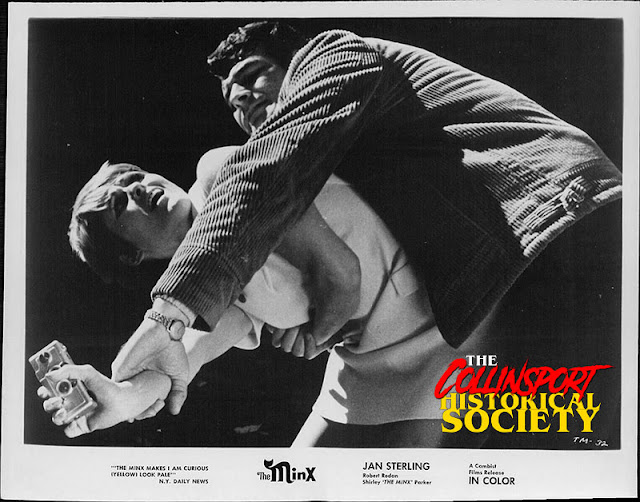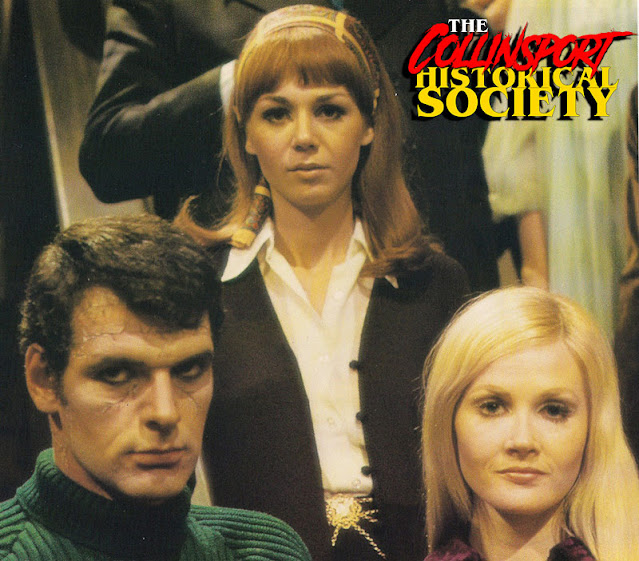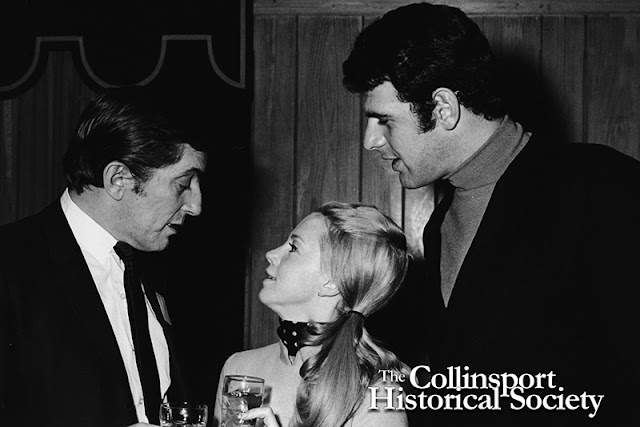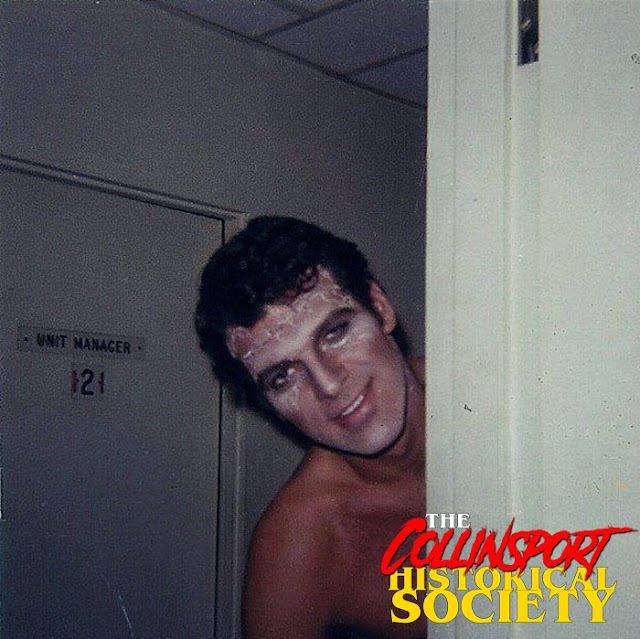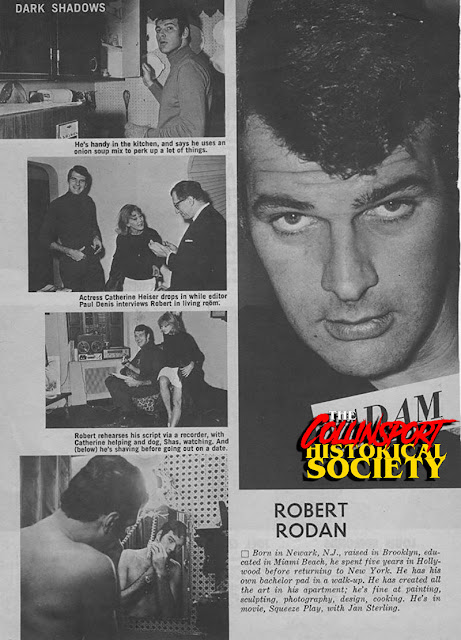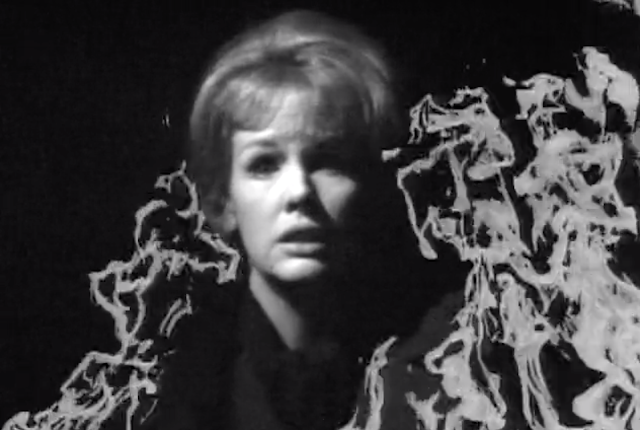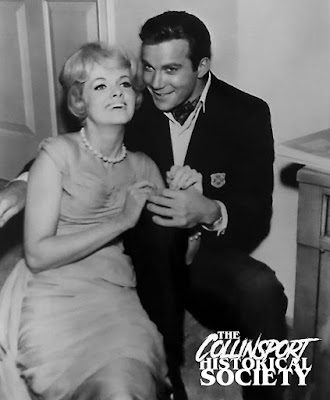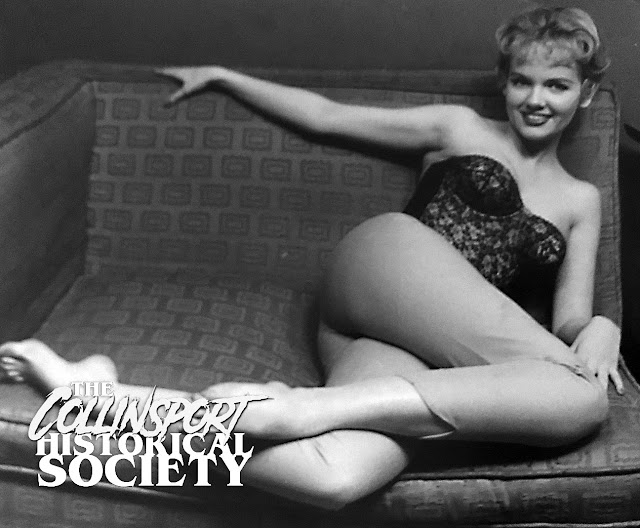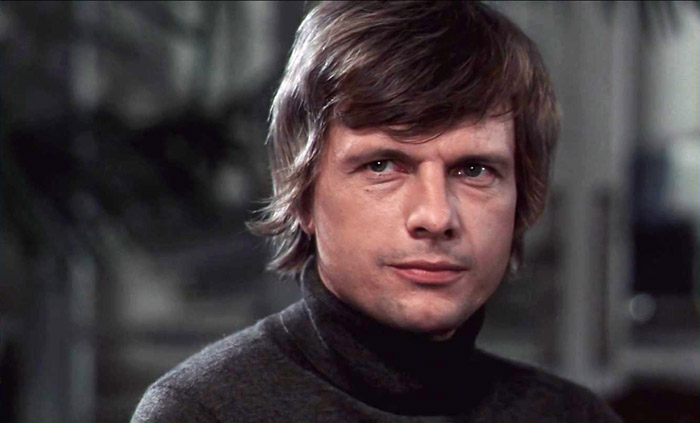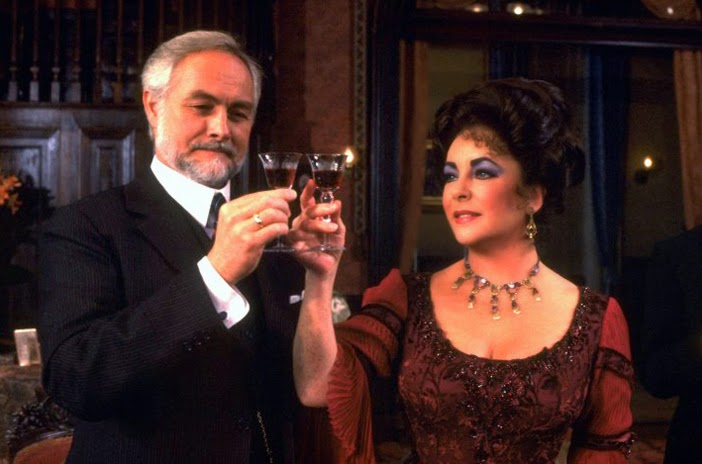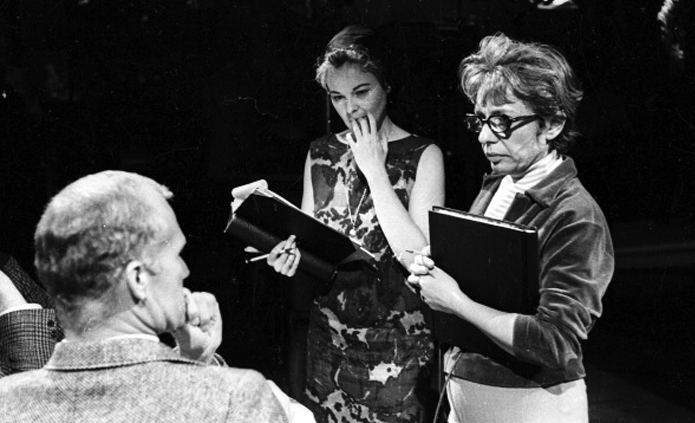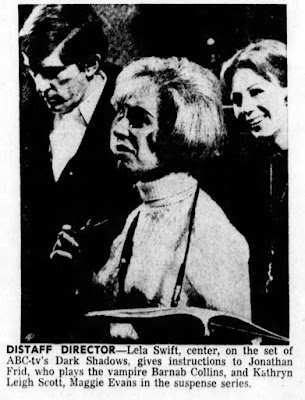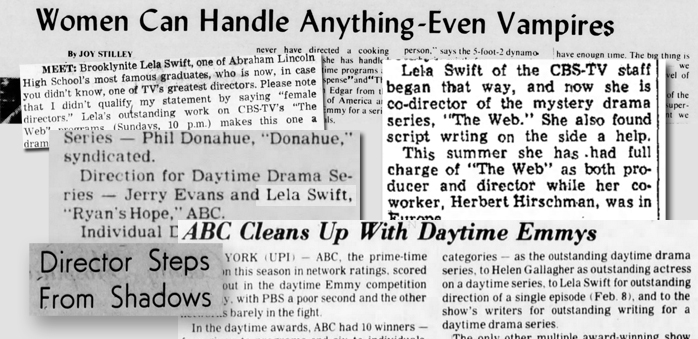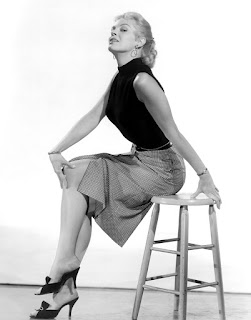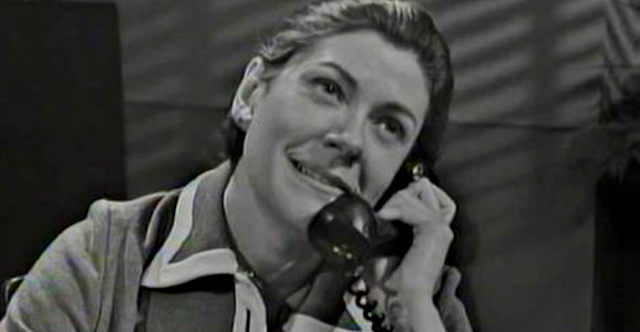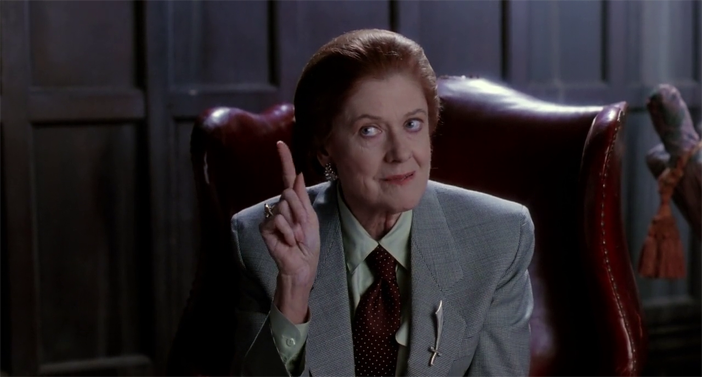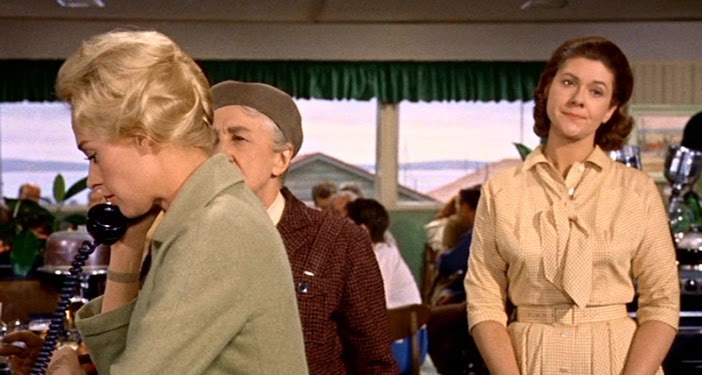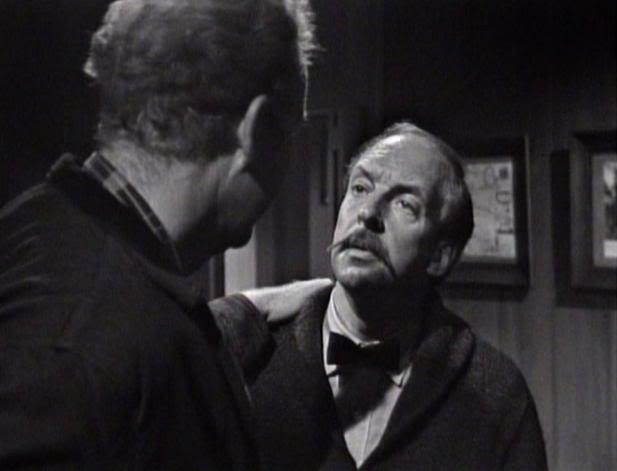God, we were lucky.
Dan Curtis had the Dream. Art Wallace made it one given form. The cast made it real. Jonathan Frid made it wholly unique. Lara Parker made it true.
Every unbelievable thing, she made true.
Poised? Yes. Precise? Yes. All are traits of the Vassar debutante aristocracy. All of those things. And Savage. Certainly, savagely intelligent. Political fashion had yet to drive a wedge between the beauty pageant and the college boards, and so before the 21st century dictated otherwise, some extraordinary women really did do it all.
Would you want to be the one to tell Lara Parker she couldn’t? Or shouldn’t? Be my guest. Tell me how that works out for you. I’m gonna be in the concrete bunker murmuring something about “I am Shiva, destroyer of worlds.”
“Destroyer of Worlds.” Yes. Lara Parker. Destruction and creation are aftermaths of each other. She destroyed worlds that had it coming. Or was that Angelique? Like Nimoy’s Spock, just don’t even bother to separate actor from role. No, she’s not Angelique. And yet Angelique is nothing without her.
“Destroyer of Worlds.” She would’ve found that the most embarrassing praise possible. Humiliating beyond words. I’m sorry. Honestly. Not done with that intent. I’m just trying to tell the truth. The only minutely positive thing to come from her passing is that we can finally and openly complement her to a proper extent, one which my experience tells me she would have found embarrassing. Well, art is embarrassing. Sometimes, our only defense against sorrow is to remind ourselves of joy. Indulgently. And Angelique was all about indulgence.
Let’s unite Lara Parker and Angelique for just a few minutes. Just as an exercise. We all do it, anyway. Now, I’m giving you permission. Because I said so.
“Goddess of Destruction.” The good kind. And why not?
Destroyer of expectations. Of orthodoxy. Of preconceptions. Of assumptions. Of what a witch was supposed to be. Of what love was supposed to be. And what a debutante was supposed to be. What a philosopher was supposed to be. What an author was supposed to be. What a celebrity was supposed to be.
Destroyer of a show with too many humans. It was a show that needed angry gods to give it humanity. And Barnabas is just one side of that equation. When Angelique entered Collinwood back around this time in the fall of ‘95, it had to be obvious that the program that had everything finally had the one final thing.. that no one was aware… that everyone had found to be missing. But never knew it. If you follow me.
To see her in action with those lines in those situations is to see something for the first time. To name drop within the family for a moment, one of Sy Tomashoff’s protégés once told me about Mozart’s most endearing quality; his music always has the freshness of hearing it for the first time, every time. Yes. Like that. But blonde and choking a toy soldier. Adorably! Yes, doing that. Or melting at the sight of Barnabas, the way we all knew he deserved. Someone who loved him as beautifully and inexplicably as he loved Josette.
And in the years after, she destroyed our sad little worlds, bereft of our friends — our real friends, in Collinsport — by bringing them to life again. In a bizarre act of unnatural love for a series that had given her and us so much. Has anyone ever given back that much? When Angelique’s Descent hit the bookstores, didn’t you think you were in the middle of the craziest dream? My God, how lucky. And then to do it three more times? Has anyone, since April of 1971, sacrificed more hours and given us more creativity, authenticity, integrity, and art, genuine, lush, literary art, in the name of Dark Shadows? No. Have you read those books? Of course, the answer is yes. You know what I’m talking about. Those are books with a depth and a freedom that this strange dream should not have yielded. Those books are undeniable truth that there is something of deep worth and resonance within this story. They are written with an eloquence and inspired élan that forever dispel the illusion that Dark Shadows is just some campy, nostalgic fad.
I have lamented that Dark Shadows has yet to find its Nicholas Meyer, (although a preemptive box of cigars is on its way to the marvelous Mark B. Perry). But I was wrong. Just as Meyer proved with the Star Trek mythos, Lara Parker did with the mythos of Dark Shadows.
A film recording is just a thin recollection of a moment of flickering, ephemeral art captured at the moment of its birth and vaporization. It’s not the experience of acting. It’s an echo of the experience of acting trapped in two dimensions.
But writing is a physical thing. It lives in a book. In defined symbols. On a shelf. In your hands. Exactly the way it was intended. The words are what the author saw when they appeared from keystrokes and pen strokes. It is the art that is always the same in the decades-later reading as it was when it was created. Lara Parker gave us Dark Shadows as much as anyone, and then she gave it to us again. In a way that will never die. And in that way, she will never die.
It’s all so unlikely. A guy puts golf on TV, and since golf is played during the day, he winds up running some daytime programming. And one Mrs. O’Leary’s cow later, fate Rube Goldbergs us to this point now. Together. If you’re reading this, I am lucky. Someone else out there gets it. What a strange, microthin streak of fortune brought us together. Lara Parker is gone. I hate those words bitterly. And that is a pain as deep and embarrassing as I ever want to feel. And, I suspect, as you ever want to feel. But think of how lucky we are to have such a reason to feel it.
And that we are together.
PATRICK McCRAY

